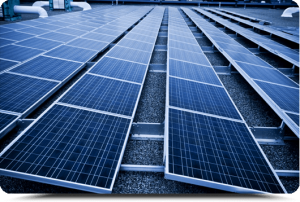As I’ve blogged about before, two U.S. solar manufacturers are petitioning the Trump Administration to levy steep tariffs on foreign solar panels. The solar industry is rightfully scared that the administration will approve them, given Trump’s anti-trade rhetoric and efforts to privilege coal over clean renewables.
The Solar Energy Industries Association recently estimated that the industry would lose 88,000 jobs, a third of the total, if the government approved the two U.S. manufacturers’ petition to levy a 78 cent floor on the price of solar modules and a 40 cent tariff on solar cells.
As E&E news reported [paywalled]:
The module price floor would slash solar demand by half over the next five years, from a cumulative 72 gigawatts to 36 GW. Add the tariff on cells, the report said, and demand would drop further, to 25 GW.
The biggest impact would be to utility-scale solar. Recently, and remarkably, big solar projects have been growing fastest in states that aren’t requiring their utilities to buy it through a policy known as the renewable energy portfolio.
Almost three-quarters of the project pipeline is in these states that are buying on economics alone, the report said. With tariffs, the report said, “most of that is at risk of cancellation unless PPA [power purchase agreement] prices are renegotiated.”
The impact on residential rooftop solar would be dramatic but less severe.
There’s no doubt that the tariffs would cause economic harm to the industry. But could manufacturers adapt to avoid the most cataclysmic price impacts?
I’ve heard anecdotally that Chinese manufacturers would respond to the tariffs by locating their plants in the U.S. to avoid them. While some U.S. protectionists might cheer this move for creating domestic jobs, the manufacturers claim that most of their plants are essentially fully automated anyway, so it would not result in any significant jobs benefits in the U.S.
And ultimately, there will be cost increases that will be passed onto consumers, which would not only depress the industry, it would hurt all the people employed in selling, installing and maintaining solar panels here. And these individuals vastly outnumber coal miners.
So we should still hope that the tariff case is rejected. But if the Trump administration goes the other way, we may have some hope that the industry can limit the damage.
 Solar panel prices have plummeted as much as 80% over this past decade, leading to a huge boom for renewables and helping to dethrone coal in our power sector. Much of that decrease has been the result of large-scale manufacturing advances and scale from solar panel manufacturing in China.
Solar panel prices have plummeted as much as 80% over this past decade, leading to a huge boom for renewables and helping to dethrone coal in our power sector. Much of that decrease has been the result of large-scale manufacturing advances and scale from solar panel manufacturing in China.
But a new trade dispute could upend the economics of the solar industry in the United States. It starts with Suniva, one of the few domestic solar panel manufacturers that was left in the U.S., until it went bankrupt earlier this year. Although Suniva assets were eventually bought by a Chinese company (ironically), its creditors now want the U.S. to invoke an obscure law to “level the playing field,” per Bloomberg:
Suniva is asking for import duties of 40¢ per watt for solar cells, which currently sell for 25¢ to 33¢ a watt. If the company prevails, the price of panels imported into the U.S. could double, potentially crippling demand for solar power. Suniva’s majority owner, Shunfeng, makes its own panels in China and opposes the trade case, but it lost its say once the bankruptcy began. Suniva’s biggest creditor, New York-based SQN Capital Management LLC, made filing the trade case a prerequisite for a $4 million loan Suniva is using to finance the Chapter 11 case.
The case goes to the U.S. International Trade Commission, which will rule by September 22nd and then send its recommendations to the president. But even if the commission finds against Suniva, trade experts apparently think the law gives the president broad authority to slap import duties on the panels.
The fear is that this case plays right into Trump’s political hands: he can kill the solar industry, which is a rival to his favored coal base, and he can then claim to put “America first.”
But given that solar PV jobs vastly outnumber coal jobs, and that solar panels provide Americans with choices to save money on utility bills and reduce local air pollution, it would be a backwards move, even by his logic. As with so many issues and this new administration, we’ll have to wait and see on the outcome.


